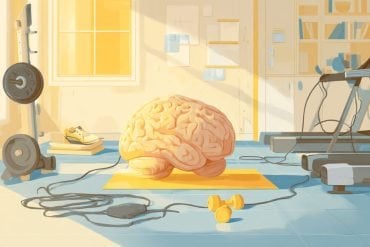Summary: Affectionate mothering in early childhood may play a lasting role in shaping personality traits that influence educational, professional, and health outcomes. A study of over 2,200 identical twins found that maternal warmth between ages 5 and 10 predicted higher levels of openness, conscientiousness, and agreeableness at age 18.
These traits are closely tied to long-term success and well-being, suggesting even modest improvements in parenting could have widespread societal benefits. The research also emphasizes that personality development is shaped by a complex interplay of genetics, parenting, and life experiences.
Key Facts:
- Parenting Matters: Maternal warmth predicted increased openness, conscientiousness, and agreeableness in adulthood.
- Twin Study Design: Researchers used identical twins to control for genetic and shared environmental factors.
- Population Impact: Boosting affectionate parenting may improve educational, economic, and health outcomes at scale.
Source: APA
Affectionate mothering in childhood may have a lasting impact on important personality traits, potentially influencing life outcomes such as educational achievement, economic success, and health and well-being, according to research published by the American Psychological Association.
The findings suggest that positive maternal parenting could foster important traits such as openness, conscientiousness and agreeableness.
Credit: Neuroscience News
“Personality traits are strong predictors of important life outcomes, from academic and career success to health and well-being,” said Jasmin Wertz, PhD, lead author of the study and a professor of psychology at the University of Edinburgh.
“Our findings suggest that fostering positive parenting environments in early childhood could have a small but significant and lasting impact on the development of these crucial personality traits.”
Wertz and her colleagues examined how maternal affection during childhood—specifically between the ages of 5 and 10—predicted the Big Five personality traits at age 18.
The Big Five personality traits are viewed by personality psychologists as the five basic dimensions of human personality: extraversion, agreeableness, openness, conscientiousness and neuroticism, or emotional stability.
The research was published in the journal American Psychologist.
Researchers examined data from 2,232 British identical twins (51.1% female) who were followed from birth through age 18 as part of the Environmental Risk Longitudinal Twins Study.
Studying identical twins allows researchers to control for genetic and environmental factors by comparing identical twins who grew up in the same family.
During the study, researchers conducted home visits with the twins’ mothers and recorded them talking about each of their children. Trained observers then rated the mothers’ responses for warmth and affection.

Twins whose mothers expressed more warmth toward them in childhood were rated as more open, conscientious and agreeable as young adults.
The results offer evidence that positive, affectionate mothering can affect key personality traits that are linked to success later in life, and these influences could have an impact across generations, said Wertz.
The researchers note that even modest changes in personality could lead to significant population-wide benefits over time, particularly in promoting conscientiousness, which is strongly associated with success in education, work and health.
Researchers found no lasting associations between maternal affection and extraversion or neuroticism.
These findings suggest that other environmental or genetic factors—such as peer relationships, life experiences, and perhaps later interventions—may be more influential for these in adulthood.
The findings also underscore the importance of considering both genetic and environmental factors when designing programs aimed at promoting positive personality traits, according to Wertz.
“This research provides valuable evidence for the potential of parenting programs to influence critical aspects of personality development,” she said.
“However, it also highlights the need for a nuanced understanding of how different factors, including genetics, parenting and life experiences, interact to shape who we are.”
Wertz believes the research provides important practical considerations for policymakers and practitioners working in education, family welfare and mental health.
Given that conscientiousness may predict success in school and the workplace, interventions designed to enhance affectionate parenting could contribute to improving educational outcomes, mental health and social well-being on a broader scale.
“There are many proven ways to support parents, such as policies that improve a family’s financial situation; access to treatment for parents who struggle with mental health problems such as depression; and parenting programs that help parents build stronger relationships with their children,” she said.
The research also sheds light on the possibility of developing parental training models to address inequalities in personality development.
“By targeting parenting practices that promote positive traits in childhood, it may be possible to reduce disparities in life outcomes associated with socioeconomic background, family dynamics and other environmental factors,” Wertz said.
About this neurodevelopment research news
Author: James Sliwa
Source: APA
Contact: James Sliwa – APA
Image: The image is credited to Neuroscience News
Original Research: Open access.
“Parenting in Childhood Predicts Personality in Early Adulthood: A Longitudinal Twin-Differences Study” by Jasmin Wertz et al. American Psychologist







